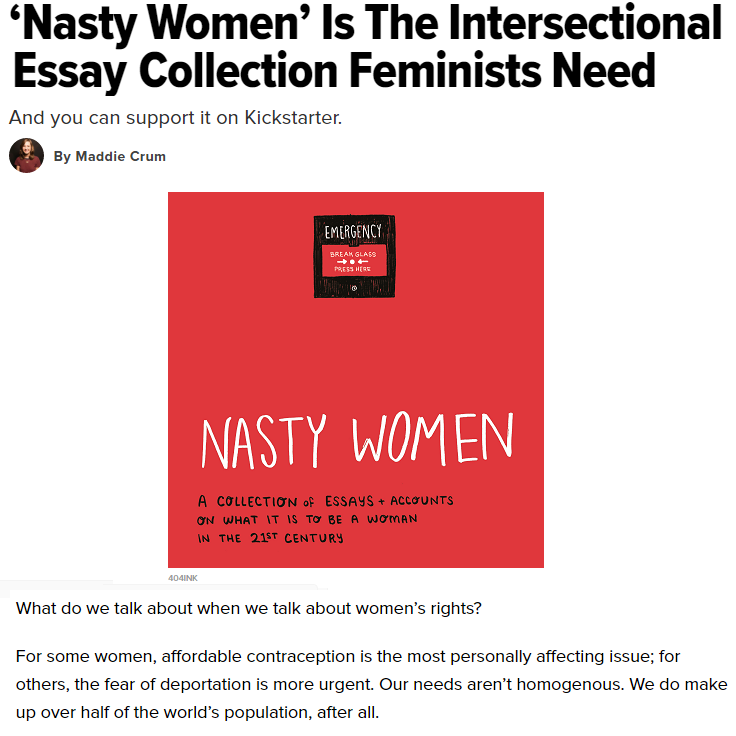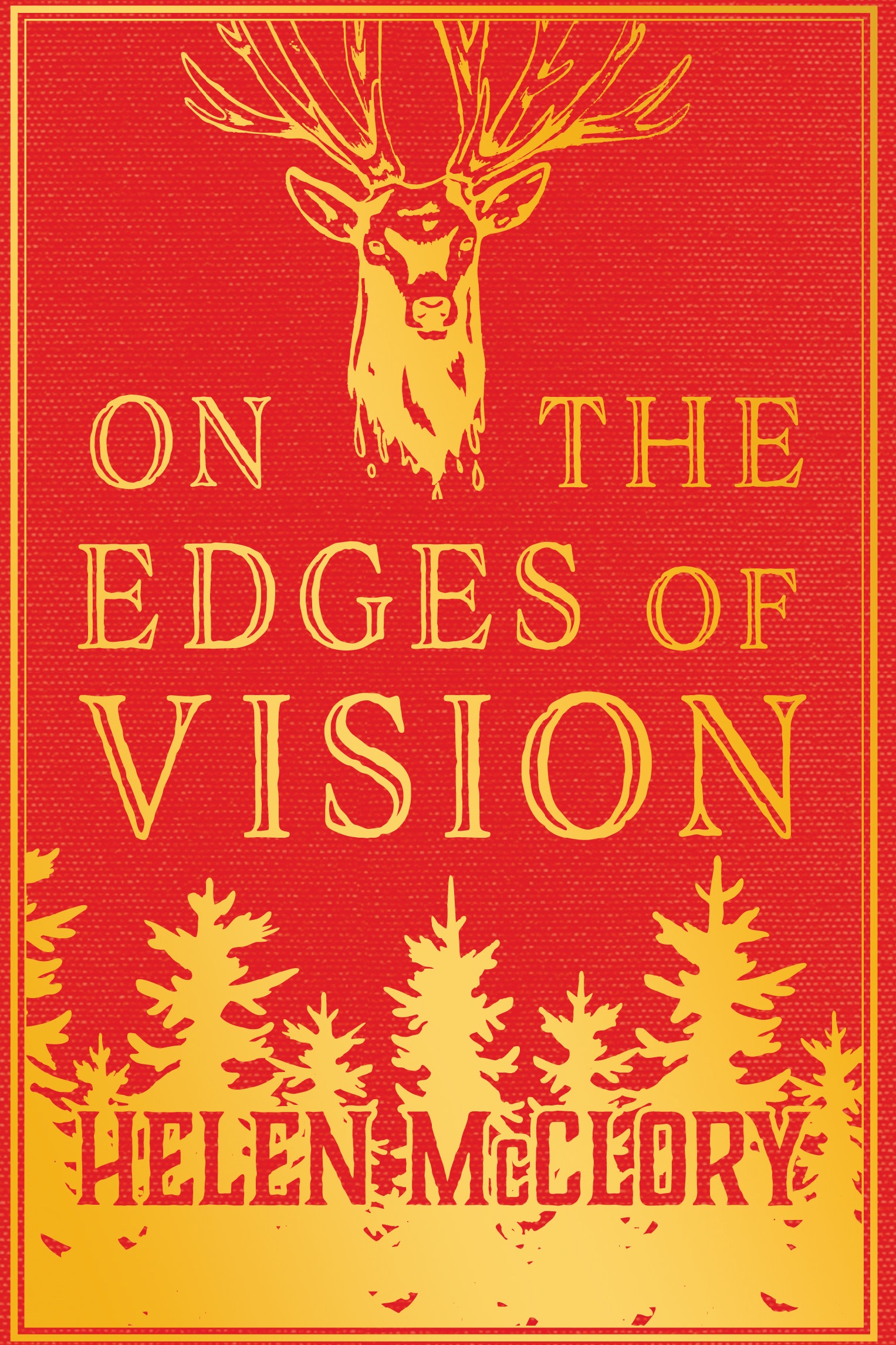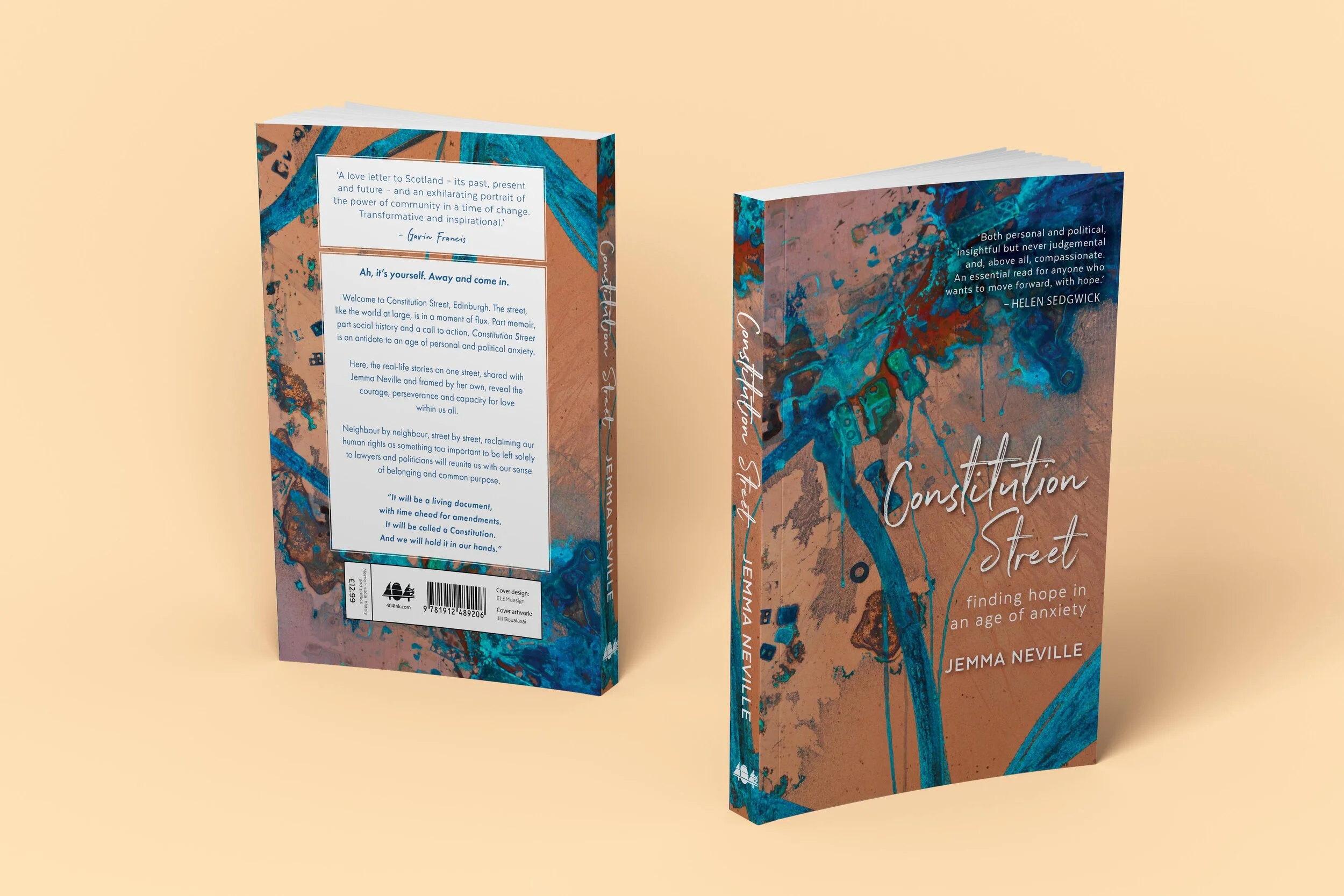ERROR
You've reached an actual 404 page. Very meta.
Privacy policy
Updated: 21/05/2018 (GDPR compliant)
tl;dr - We only obtain your data as provided to us with your consent to be able to fulfill customer orders and will only use your data for this purpose. We hold onto this data via Squarespace commerce for an indefinite amount of time but you can request to have your data removed from this at any time by emailing hello@404ink.com. We do not have access to any banking information, as this is used by either PayPal or Stripe, depending on how you choose to pay for your products via our website. They must have this information to be able to process payments and refunds in the event that a refund is necessary. We will not add you to any marketing mailing lists without your express consent and you can unsubscribe from any communications from us at any time by emailing hello@404ink.com.
1. Introduction
1.1 We are committed to safeguarding the privacy of our website customers.
1.2 This policy applies where we are acting as a data controller with respect to the personal data of customers; in other words, where we determine the purposes and means of the processing of that personal data.
1.3 Our website incorporates privacy controls which affect how we will process your personal data. By using the privacy controls, you can limit the accessibility of your information.
1.4 In this policy, "we", "us" and "our" refer to 404 Ink.
2. Credit
2.1 This document was created using a template from SEQ Legal (https://seqlegal.com).
3. How we use your personal data
3.1 In this Section 3 we have set out:
(a) the general categories of personal data that we may process;
(b) the purposes for which we may process personal data; and
(c) the legal bases of the processing.
3.2 We may process data about your use of our website and services ("usage data"). The usage data may include your IP address, geographical location, browser type and version, operating system, referral source, length of visit, page views and website navigation paths, as well as information about the timing, frequency and pattern of your service use. The source of the usage data is Squarespace Analytics. This usage data may be processed for the purposes of analysing the use of the website and services. The legal basis for this processing is our legitimate interests, namely monitoring and improving our website and services.
3.3 We may process your personal data that are provided in the course of the use of our services ("service data"). The service data may include your name, delivery address, telephone number, email address, billing address. The source of the service data is you. The service data may be processed for the purposes of operating our website, providing our services. The legal basis for this processing is consent.
3.4 We may process information relating to transactions, including purchases of goods and services, that you enter into with us and/or through our website ("transaction data"). The transaction data may include your contact details, your card details and the transaction details. The transaction data may be processed for the purpose of supplying the purchased goods and services and keeping proper records of those transactions. The legal basis for this processing is the performance of a contract between you and us and/or taking steps, at your request, to enter into such a contract and our legitimate interests, namely 404 Ink.
3.5 We may process information that you provide to us for the purpose of subscribing to our email notifications and/or newsletters ("notification data"). The notification data may be processed for the purposes of sending you the relevant notifications and/or newsletters. The legal basis for this processing is consent.
3.6 We may process information contained in or relating to any communication that you send to us ("correspondence data"). The correspondence data may include the communication content and metadata associated with the communication. Our website will generate the metadata associated with communications made using the website contact forms. The correspondence data may be processed for the purposes of communicating with you and record-keeping. The legal basis for this processing is our legitimate interests, namely the proper administration of our website and business and
3.7 We may process any of your personal data identified in this policy where necessary for the establishment, exercise or defence of legal claims, whether in court proceedings or in an administrative or out-of-court procedure. The legal basis for this processing is our legitimate interests, namely the protection and assertion of our legal rights, your legal rights and the legal rights of others.
3.8 We may process any of your personal data identified in this policy where necessary for the purposes of obtaining or maintaining insurance coverage, managing risks, or obtaining professional advice. The legal basis for this processing is our legitimate interests, namely the proper protection of our business against risks.
3.9 In addition to the specific purposes for which we may process your personal data set out in this Section 3, we may also process any of your personal data where such processing is necessary for compliance with a legal obligation to which we are subject, or in order to protect your vital interests or the vital interests of another natural person.
3.10 Please do not supply any other person's personal data to us, unless we prompt you to do so.
4. Providing your personal data to others
4.1 We may disclose your name, email and delivery address to our suppliers or subcontractors, most likely our distributor BookSource insofar as reasonably necessary for any purchase orders that cannot be fulfilled specifically by 404 Ink.
4.2 Financial transactions relating to our website and services are handled by our payment services providers, Stripe and PayPal, via Squarespace. We will share transaction data with our payment services providers only to the extent necessary for the purposes of processing your payments, refunding such payments and dealing with complaints and queries relating to such payments and refunds. You can find information about the payment services providers' privacy policies and practices at the following URLs:
https://www.paypal.com/en/webapps/mpp/ua/privacy-full
https://www.squarespace.com/privacy/
4.3 In addition to the specific disclosures of personal data set out in this Section 4, we may disclose your personal data where such disclosure is necessary for compliance with a legal obligation to which we are subject, or in order to protect your vital interests or the vital interests of another natural person. We may also disclose your personal data where such disclosure is necessary for the establishment, exercise or defence of legal claims, whether in court proceedings or in an administrative or out-of-court procedure.
5. International transfers of your personal data
5.1 In this Section 5, we provide information about the circumstances in which your personal data may be transferred to countries outside the European Economic Area (EEA).
5.2 The hosting facilities for our website are situated in the United States of America. The European Commission has made an "adequacy decision" with respect to the data protection laws of each of these countries.
5.3 You acknowledge that personal data that you submit for publication through our website or services may be available, via the internet, around the world. We cannot prevent the use (or misuse) of such personal data by others.
6. Retaining and deleting personal data
6.1 This Section 6 sets out our data retention policies and procedure, which are designed to help ensure that we comply with our legal obligations in relation to the retention and deletion of personal data.
6.2 Personal data that we process for any purpose or purposes shall not be kept for longer than is necessary for that purpose or those purposes.
6.3 We will retain your personal data as follows:
(a) Data provided for us to be able to fulfil customer orders [Name, billing address, postal address, email address, telephone number] will be retained for a minimum period of when you provide the data to one calendar year from our obtainment of the data, and for a maximum period of 5 years from when you provided the data.
(a) Data provided for us to be able to email marketing [email address] will be retained for an indenfinite period of when you provide the data and consent to the use of the data, to when you unsubscribe or we delete said data.
6.4 Notwithstanding the other provisions of this Section 6, we may retain your personal data where such retention is necessary for compliance with a legal obligation to which we are subject, or in order to protect your vital interests or the vital interests of another natural person.
7. Amendments
7.1 We may update this policy from time to time by publishing a new version on our website.
7.2 You should check this page occasionally to ensure you are happy with any changes to this policy.
7.3 We may notify you of significant changes to this policy by email.
8. Your rights
8.1 In this Section 8, we have summarised the rights that you have under data protection law. Some of the rights are complex, and not all of the details have been included in our summaries. Accordingly, you should read the relevant laws and guidance from the regulatory authorities for a full explanation of these rights.
8.2 Your principal rights under data protection law are:
(a) the right to access;
(b) the right to rectification;
(c) the right to erasure;
(d) the right to restrict processing;
(e) the right to object to processing;
(f) the right to data portability;
(g) the right to complain to a supervisory authority; and
(h) the right to withdraw consent.
8.3 You have the right to confirmation as to whether or not we process your personal data and, where we do, access to the personal data, together with certain additional information. That additional information includes details of the purposes of the processing, the categories of personal data concerned and the recipients of the personal data. Providing the rights and freedoms of others are not affected, we will supply to you a copy of your personal data. The first copy will be provided free of charge, but additional copies may be subject to a reasonable fee. You can request your personal data by emailing hello@404ink.com.
8.4 You have the right to have any inaccurate personal data about you rectified and, taking into account the purposes of the processing, to have any incomplete personal data about you completed.
8.5 In some circumstances you have the right to the erasure of your personal data without undue delay. Those circumstances include: the personal data are no longer necessary in relation to the purposes for which they were collected or otherwise processed; you withdraw consent to consent-based processing; you object to the processing under certain rules of applicable data protection law; the processing is for direct marketing purposes; and the personal data have been unlawfully processed. However, there are exclusions of the right to erasure. The general exclusions include where processing is necessary: for exercising the right of freedom of expression and information; for compliance with a legal obligation; or for the establishment, exercise or defence of legal claims.
8.6 In some circumstances you have the right to restrict the processing of your personal data. Those circumstances are: you contest the accuracy of the personal data; processing is unlawful but you oppose erasure; we no longer need the personal data for the purposes of our processing, but you require personal data for the establishment, exercise or defence of legal claims; and you have objected to processing, pending the verification of that objection. Where processing has been restricted on this basis, we may continue to store your personal data. However, we will only otherwise process it: with your consent; for the establishment, exercise or defence of legal claims; for the protection of the rights of another natural or legal person; or for reasons of important public interest.
8.7 You have the right to object to our processing of your personal data on grounds relating to your particular situation, but only to the extent that the legal basis for the processing is that the processing is necessary for: the performance of a task carried out in the public interest or in the exercise of any official authority vested in us; or the purposes of the legitimate interests pursued by us or by a third party. If you make such an objection, we will cease to process the personal information unless we can demonstrate compelling legitimate grounds for the processing which override your interests, rights and freedoms, or the processing is for the establishment, exercise or defence of legal claims.
8.8 You have the right to object to our processing of your personal data for direct marketing purposes (including profiling for direct marketing purposes). If you make such an objection, we will cease to process your personal data for this purpose.
8.9 You have the right to object to our processing of your personal data for scientific or historical research purposes or statistical purposes on grounds relating to your particular situation, unless the processing is necessary for the performance of a task carried out for reasons of public interest.
8.10 To the extent that the legal basis for our processing of your personal data is:
(a) consent; or
(b) that the processing is necessary for the performance of a contract to which you are party or in order to take steps at your request prior to entering into a contract,
and such processing is carried out by automated means, you have the right to receive your personal data from us in a structured, commonly used and machine-readable format. However, this right does not apply where it would adversely affect the rights and freedoms of others.
8.11 If you consider that our processing of your personal information infringes data protection laws, you have a legal right to lodge a complaint with a supervisory authority responsible for data protection. You may do so in the EU member state of your habitual residence, your place of work or the place of the alleged infringement.
8.12 To the extent that the legal basis for our processing of your personal information is consent, you have the right to withdraw that consent at any time. Withdrawal will not affect the lawfulness of processing before the withdrawal.
8.13 You may exercise any of your rights in relation to your personal data by emailing hello@404ink.com.
9. About cookies
9.1 A cookie is a file containing an identifier (a string of letters and numbers) that is sent by a web server to a web browser and is stored by the browser. The identifier is then sent back to the server each time the browser requests a page from the server.
9.2 Cookies may be either "persistent" cookies or "session" cookies: a persistent cookie will be stored by a web browser and will remain valid until its set expiry date, unless deleted by the user before the expiry date; a session cookie, on the other hand, will expire at the end of the user session, when the web browser is closed.
9.3 Cookies do not typically contain any information that personally identifies a user, but personal information that we store about you may be linked to the information stored in and obtained from cookies.
10. Cookies that we use
10.1 We use cookies for the following purposes:
(a) authentication - we use cookies to identify you when you visit our website and as you navigate our website
(b) analysis - we use cookies to help us to analyse the use and performance of our website and services
(c) cookie consent - we use cookies to store your preferences in relation to the use of cookies more generally
11. Cookies used by our service providers
11.1 Our service providers use cookies and those cookies may be stored on your computer when you visit our website.
11.2 We use Google Analytics to analyse the use of our website. Google Analytics gathers information about website use by means of cookies. The information gathered relating to our website is used to create reports about the use of our website. Google's privacy policy is available at: https://www.google.com/policies/privacy/.
12. Managing cookies
12.1 Most browsers allow you to refuse to accept cookies and to delete cookies. The methods for doing so vary from browser to browser, and from version to version. You can however obtain up-to-date information about blocking and deleting cookies via these links:
(a) https://support.google.com/chrome/answer/95647?hl=en (Chrome);
(b) https://support.mozilla.org/en-US/kb/enable-and-disable-cookies-website-preferences (Firefox);
(c) http://www.opera.com/help/tutorials/security/cookies/ (Opera);
(d) https://support.microsoft.com/en-gb/help/17442/windows-internet-explorer-delete-manage-cookies (Internet Explorer);
(e) https://support.apple.com/kb/PH21411 (Safari); and
(f) https://privacy.microsoft.com/en-us/windows-10-microsoft-edge-and-privacy (Edge).
12.2 Blocking all cookies will have a negative impact upon the usability of many websites.
12.3 If you block cookies, you will not be able to use all the features on our website.
13. Our details
13.1 This website is owned and operated by Squarespace.
13.2 We are registered in Scotland under registration number SC539902, and our registered office is Summit House, 4-5 Mitchell Street, Edinburgh, EH6 7BD.
13.3 You can contact us:
(a) by email using hello@404ink.com
IN THE PRESS
Jeff Goldblum Bingo (Bingo Goldbingo)
Treat yourself to our books at the 404 shop.
We Shall Fight Until We Win. The graphic novel anthology celebrating a century of pioneering political women. Shop now.
Nasty Women: the bestselling collection of essays and accounts on what it is to be a woman in the 21st century. Shop now.
Hings by Chris McQueer. 'Hilariously surreal snapshots of working class Scotland. Limmy meets Irvine Welsh.' Shop now.
The Last Days of James Scythe by Creeper. The files surrounding James' disappearance have been kept secret - until now. Shop now.
Helen McClory. Whether you're looking for dark, absorbing flash fiction, or Jeff Goldblum oddities, we got you. Shop now.
HWFG by Chris McQueer. ‘The most exciting and authentic new voice in UK literature. Charlie Brooker on Buckfast.’ Shop now.
“Without platforms like 404 Ink promoting underrepresented and silenced voices, there would be little light left in the future of the media.”
Limmy
Amanda Palmer
"Good morning read" - Tegan and Sara
Shirley Manson, Garbage
WWE's Noam Dar
Legend who took NW to Trump Tower
“[404 Ink and Nasty Women are] heralding a new democratic age of publishing.”
To celebrate International Women’s Day 2019, we’ve pulled together 404 books by amazing women. From anthologies to dark gothic gables, stunning poetry to Goldblumy wonders, we’ve got quite the mix for you. Check them out below!
You can buy all these and more at the 404 shop!
This is the entirety of the introduction to Jemma Neville’s book Constitution Street, published in September 2019, an exploration of hope in an age of anxiety in the face of political and social turmoil. We are posting this on the 31st of January 2020, the day that the UK leaves the EU, a day where many are mourning the loss of neighbours. We hope Jemma’s words will provide some perspective and comfort to you as they have to us as publishers and readers. If you wish to read Constitution Street in full, you can do so by purchasing a copy here.
Welcome
Photo by Rob Smith
I crossed over the road to my neighbour’s house. The distance from one side of Constitution Street to the other is some twenty paces, if you count them out (which I do), but after a decade of crossing back and forth and weaving in and out between the traffic, it must equate to many miles and a journey well-travelled.
This particular stepping out was in January 2017. The night-time sky dripped black and blue and horizontal drifts of sleet slapped against my cheeks. Earlier that morning, the brass flip-calendar on a shelf in my hallway showed 25/ Wednesday/ January when I adjusted the rotating dials, as I do every day, as part of my routine. The black lettering of a new day had somersaulted forward with a satisfying clicking sound into the metallic place-holders. Everything in its right place.
It was Burns Night on Constitution Street in Leith, Scotland, and the year still blinking and bleary. We traditionally mark the annual celebration of the National Bard with a supper of sheep’s stomach stuffed with offal and washed down with drams of whisky, usually amongst friends, and strangers who might become friends. Then the performed re-telling of a long Scots poem no one can quite remember one year to the next. Something about a drunken man riding home from the pub one stormy night on his horse and happening upon a witches’ dance led by the devil playing bagpipes. All the while, a long-suffering wife waiting at home, nursing her wrath. After the poem, there is a toast to the lassies and a reply. It’s a conversation. A song. A quarrel to be soothed. There is union and disunion throughout. It’s a semi-autobiographical story of a nation looking inward, which we retell every year.
We have heard a lot of stories in recent years on Constitution Street, and on streets up and down the land, about our differences. The Yes and the No. The Leave and the Remain. The them and the us. With us or against us. The coming and the going of constitutional stand points and binary positions. Some neighbours put up campaign posters in their windows. Others closed the curtains. Some sang protest songs and wrote poems. Some felt anxious. Some felt excited. I felt a bit of all of these emotions. My neighbour across the road and I voted differently in the two referendums in recent years. By contrast to the multitude of choice and complexity shaped by our life experiences, the referendums presented purely binary choices to voters. ‘Should Scotland be an independent country?’ Yes or No. ‘Should the United Kingdom remain a member of the European Union or leave the European Union?’ Yes or No. There were no middle ground; no place to capture any measure of the nuances and ambiguities that lie behind a choice of two opposites. Life, of course, isn’t like that. It is messy and capricious and all the richer because of it. Many voters were likely an apologetic No, a surprise Yes, a hesitant Remain or a protest Leave, along a broad spectrum of preferences and aversions to risk, shaped by personal and public narratives. In one way or another, we are all somewhere in between. Rather, we need to be asking one another, what do we hold in common? Who is my neighbour? How do we want to live together, here, on this street?
Good questions make for better law and policy-making. On 24 January 2017, the day before our Burns Supper on Constitution Street, judges at the UK Supreme Court were asked to consider a significant constitutional question posed by business woman and campaigner Gina Miller about the balance of power between the executive and legislature. The court ruled that the UK Government could not remove the country from the European Union without the legislative consent of Parliament. However, the same constitutional law case also held that consent from the devolved legislatures, including the Scottish Parliament, was not required. The constitutional convention of seeking consent in matters concerning devolution had been proved to be just that, a convention and not a law.[1]
A year and a half later, in June 2018, The European Union (Withdrawal) Act would be given royal assent.[2] The intervening months were a time of immense uncertainty for the constitutional futures of both Scotland and the UK. It was an interregnum of sorts while we waited for the balance of powers to settle. The collective mood was one of flux. Anxiety en masse pervaded everything and everyone. Our national identity was at sea, with the rest of the world looking on. Of course, treading water at sea can look like waving to onlookers or drowning alone, depending on your vantage point. One thing we did mostly agree with, on Constitution Street and streets up and down the land, was the need to hold onto our shared values and to try to navigate a way forward in the unchartered waters swelling in and around Brexit.
We needed both a compass and an anchor that would protect our human rights beyond the party politics of the day. The idea of a written constitution drafted for, with and by the people of Scotland had been floating for some time, proposed by legal scholars, but as the UK’s constitutional arrangements became more and more choppy in the absence of a post-Brexit plan, the need for a rights framework, in the form of a written constitution, became increasingly real to me.[3]
I was aware that 2018 coincided with twenty years since the establishment of the devolved Scottish Parliament. It was also twenty years since I was a young, idealistic law student marching to make poverty history, protesting the invasion of Iraq and then, in my first job, recording witness testimony and applying international law in the war-crimes courts of former Yugoslavia. The Balkans are a lesson in what can go badly wrong when neighbours stop talking to one another and respect for human rights law is destroyed.
When the law is well-drafted, it unfolds like a map. Statutes are a route-marker and case law like cairns that indicate changing conditions. Navigating the law as a living document is about observing both the letter and the spirit of the law in the present climate. It is about seeing what is written down and the expression and intent concealed within it.
Human rights law is further guided by principles such as proportionality, to balance individual freedoms with public interest as a whole. The duty of the state and its public bodies to respect, protect and fulfil our human rights, such as the highest attainable standard of healthcare, housing and social security, is about ensuring that we can all live out our lives with human dignity. In this way, the wellbeing and outlook of each of us individually can be seen as a living, breathing indicator of the collective health of the law and of the nation - our combined constitutional strength.
Back when I was a student learning about the law, I took everything to heart in an unjust world. I know now that self-care can be the most useful act of change-making in the world, freeing up energy and compassion to be a happier, lighter person to be around. And of course, most of us are anxious, in our own particular ways of being and doing. Anxiety fizzes in the mind and the belly as we over-analyse past events and worry about the future. It is a futile, and ultimately self-destructive, effort to control the uncontrollable.
For me, anxious behaviour also manifests itself in the most mundane of ways. For example, by obsessing about the placement and contact of things side by side - the edges, the spaces in between, the ellipsis. I might walk as silently and deliberately as possible along the pavement as though I were wearing moccasins on a forest floor, trying to avoid the cracks. Or sometimes, the anxiety takes the form of willing one hypothetical thing to happen over another, a sort of plea-bargaining with myself. I will challenge myself to reach the next kerb before an approaching bus rounds the corner onto the street, telling myself that this effort will prevent something bad (usually an expected loss) from occurring. The real object of the control and concern is bound up with attachment to people, and the proximity and depth of my relationship to those people. It is with some irony then that these apparently common behavioural traits can be flippantly labelled OCD - obsessive compulsive disorder - when it is the ordering, the attempts at controlling the uncontrollable, that push and pull the undulating waves of anxiety.
But anxiety is not all bad. Hypersensitivity makes us pay attention to detail and subtlety that might otherwise be overlooked or unheard. It engages the empathy muscle. When I walk up and down Constitution Street every day with my dog, Bonnie - our pre-amble - I overhear hopeful stories about neighbours helping one another and of people of different nationalities, ages, faiths, and political outlooks finding common ground. This bears little resemblance to the fear-inducing headlines about division and intolerance in the national and international news.
I started to write down some of the stories, for writing is itself an act of protest against impermanence and uncertainty. It claws at the past and calls out to a future reader. It fixes words in a moment of time. On Constitution Street, I was back in a courtroom of sorts. I was listening, documenting and weighing up testimony. In this gathering of evidence, I sat cross-legged on the floor of my tenement flat and sketched out a map of the street onto large sheets of brown parcel paper and then sticky-taped them to a wall. Over the map, I drew arrows and crisscrossing lines in black pen, showing how the people of the street, my neighbours, come into contact with one another. I wrote down the names I knew and ringed obvious meeting points of connection. The whole thing resembled a crime-scene investigation which I soon had to warn visitors about when they came to my home.
Making the map and then fixing it to the wall of my flat, I was subconsciously marking out the boundaries of my home life and how my attachment to home expands out into the street and city beyond. The arrows and circles that linked people and places became a set of founding provisions for recognising a form of commons with my neighbours.[4] I wanted to know more about the people I passed every day in the street and to be known in return. Who was the person behind a nod, a wave or a smile? What made my neighbours hopeful or anxious? How did they come to live or work on Constitution Street? What did human rights mean to them?
I used these questions to open up face-to-face and side-by-side conversations on the street about how we could shape a future that places human dignity at the centre of our country’s law-making. More often than not, neighbours told me that no one had ever asked them these questions before. Unlike in the news coverage of the chaotic months preceding Brexit, most of my interviewees weren’t politicians, lawyers or well-known commentators. They were people like you and me.
I also had an inclination that by sending out and receiving these open letters, I might personally feel more grounded during a liminal time in my own life. To be known in the sense of daily recognition - a friendly wave across the street, a nod or smile at the bus stop, or to be offered ‘the usual’ in a local pub or café - is believed by social psychologists to be a strong indicator of wellbeing.[5] These small, everyday moments of attachment make us feel valued and safe. I hoped that my street conversations would help to make the application of human rights in practice real for me. In this way, I was maintaining, or restoring, my own wellbeing. I was setting out on a constitutional. And, like all of us, I wanted to love and to be loved, by the people I encountered.
You see, I love my neighbours. I don’t always like them, mind. Mind, see, ken, like, eh, you know what I mean? Everyday speech is peppered with the desire to be listened to and be known. Conflict arises when we don’t feel known or listened to. Ambling up and down Constitution Street as I do each day, my belonging to a place, and its knowing of me in turn, becomes familiar. As fellow human beings passing one another in the street, neighbours are continually observing and amending conventions, codes and precedents for ways of getting along together. Getting here. Getting it right. Like, mind on Burns Night in January 2017?
That night, across the road from my home, I had been invited, along with other women from the street, to celebrate exactly twenty years’ sobriety of a neighbour and friend with a Burns Supper. No booze, no meat, no men. For one night at least. Later, when we were gathered inside her house, a vegetarian haggis would be cooked in the microwave and its split insides served with a clapshot of neeps, tatties and tomato ketchup, eaten from plates on trays on knees.
Further along the street at the north-south junction that stretches parallel to the sea, there still stands a commemorative statue of the Bard, Rabbie Burns, dressed in plaid waistcoat and breeches, his right hand raised over his heart. Hidden in plain sight, he hings his head wistfully toward the temptations of the docks, the dancing girls, the honest poverty, the dignities and the hamely fare on which we would be dining at the Burns Supper. For a’ that.
Our street is rich too with other constitutional characters from Scottish, British and European history. Robert the Bruce, Henry VIII, Mary Queen of Scots and Oliver Cromwell all feature. Here is the spot where for centuries Scotland faced the world, as ships set sail from the docks at the port of Leith to the European mainland and wider world beyond. It has always been a meeting point of the old, the new and the in between.
Photo by Rob Smith
It was at this junction by the Burns statue that my year and a half of conversations about human rights and dignities lay stretched out ahead. From January 2017 to June 2018, I interviewed sixty of my neighbours and the owners of local businesses about our lives together on the street. These sixty people became the drafters of this, a Bill of Rights. We discussed what we wanted to amend and what we wanted to keep. These were our checks and balances for constitutional change. I listened to those who voted differently from me and I challenged my own assumptions and prejudices, to consider what rights, if any, we would want to enshrine in a new written constitution.
Alongside these conversations, the broader context did not stand still. Political events, at home and in the rest of the world, unfolded in unpredictable and messy ways. It was a slippery time for both geopolitics and for me personally, encompassing a snap General Election, prolonged Brexit negotiations, an existential crisis for Scottish nationalism, lessons in popular sovereignty from the Catalan and Kurdish independence campaigns and opportunities to reconnect with refugee friends as they continued their journeys through Europe. Like a long Scots ballad, there was union and disunion throughout.
My comparative research on constitutional change took me from the Foot of the Walk in Leith, to Aristotelous Square in Greece and Placa Catalunya in Spain, meeting with ordinary people living through extraordinary times in their own small places closest to home. Mostly though, I walked up and down Constitution Street every day and I paid attention to change so that I might come to name it, and therefore to know the street, and myself, better.
Written in real-time from January 2017 to June 2018, I matched up my diary accounts of the conversations I had with my neighbours with individual human rights. The resulting series of letters to the law tell of hellos and goodbyes, of snow falling and melting, of new babies being born on the street, of politicians shaking hands, of cygnets surviving in the river current and of unexpected and sudden loss. It was the best of times and the worst of times. So it goes in the tale of my city street.
It all started with climbing the eight, slanting slabs of sandstone steps to the house across the road and chapping on my neighbour’s front door. I unfurled my scarf and flattened my windswept hair. I shuffled back and forth on her doorstep, to and fro, tapping out a swaying rhythm in heeled boots, trying to keep warm in the soapy sting of January air and to not drop my gift of a haggis. Poised, ready, I hovered on the threshold, on the periphery, somewhere in between. The sky above me and the street below. I knocked again. I pushed open the letter box and called ‘It’s just me’ into the slit of electric light. I watched my breath be absorbed into the gathering warmth of the familiar hallway beyond. I waited. A dog barked. A pair of denimed legs attached to bare feet appeared in the rectangular picture frame of the letter box, hinging and enlarging into view across floorboards like a half-shut knife. My neighbour came to open her door
Ah, it’s yourself, she said. Away and come in.
[1] R (Miller) v Secretary of State for Exiting the European Union [2017] UKSC.
[2] The European Union (Withdrawal) Act 2018, Hansard vol.792.
[3] A note on Brexit and sources of human rights law: The European Convention on Human Rights (ECHR) and its accompanying Protocols will continue in effect, regardless of the UK’s membership status in the European Union as it is a regional instrument of the Council of Europe not the EU. The Council of Europe includes countries outside of the EU, such as Russia, Turkey and Ukraine. Obligations under United Nations treaty bodies will be unaffected by Brexit. However, protections through the EU Charter of Fundamental Rights and the European Social Charter will be lost if the UK leaves the EU.
[4] The commons is a way of negotiating shared space and resources. This is explored further in the later chapter on the Right to Self-Determination.
[5] Referred to as ‘The Social Cure’, the feeling that you share a social identity with others is reported to lead to multiple positive health outcomes. (Jetten, J. (Ed.), Haslam, C. (Ed.), Haslam, A. (Ed.). (2012). The Social Cure. London: Psychology Press). Another form of recognition is being greeted by others in your group who you don’t know. Like recognition between acquaintances, this has an ontological component such that they’re signalling that they recognise you as a member of the group and that you belong. See examples from mass participation events, such as religious festivals or football matches (Neville, F., & Reicher, S. (2011). The experience of collective participation: Shared identity, relatedness and emotionality. Contemporary Social Science, 6(3), 377-396).
Copyright © Jemma Neville, 2019. All rights reserved. Not for reproduction without permission from 404 Ink.











































